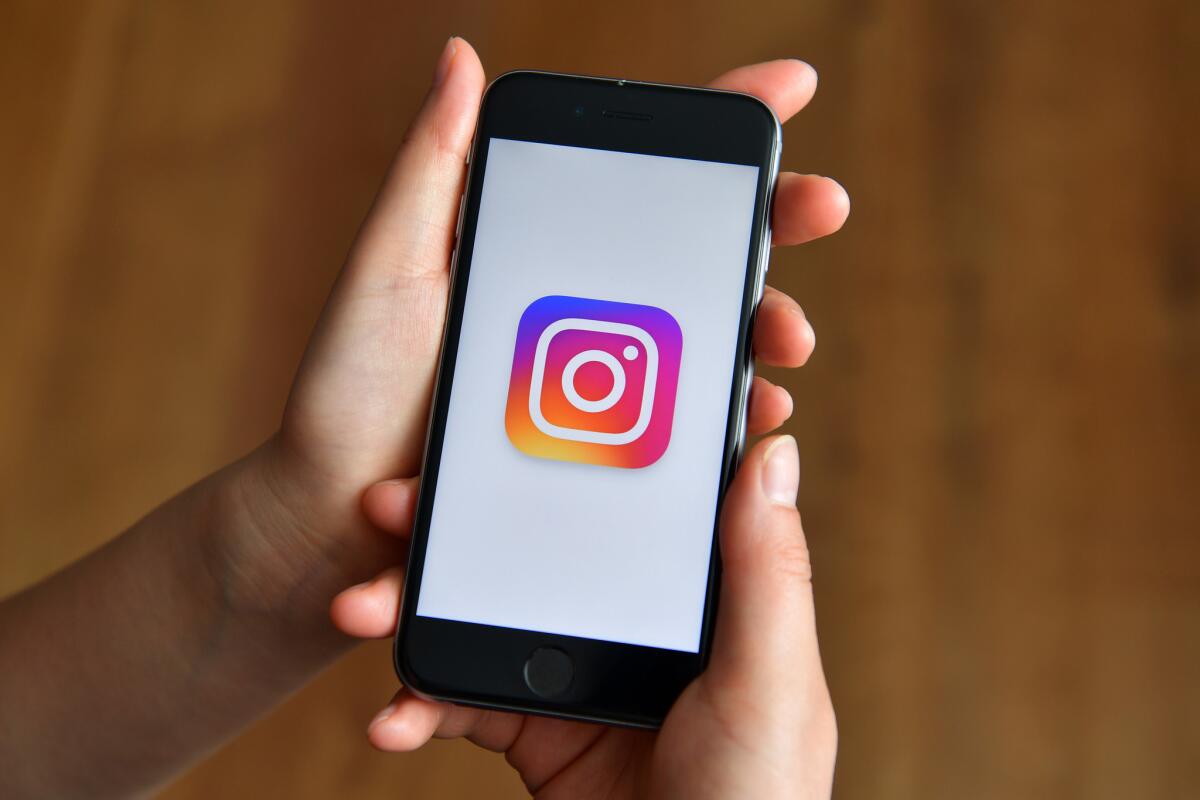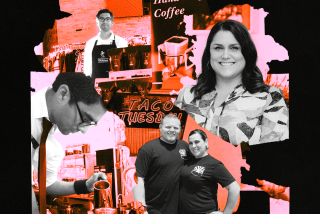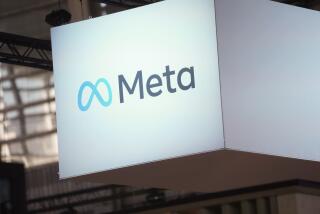For ‘Insta-brands,’ boycotting Facebook advertising isn’t easy

Buying advertising is one way businesses large and small tell consumers what they’re all about. Not buying ads can be a way of doing that too.
More than 200 companies have signed onto a pledge not to run ads on Facebook or its subsidiary, Instagram, through July in an effort to pressure Facebook to remove hateful and racist content from its site. Started by the Anti-Defamation League, the NAACP, Sleeping Giants, Color of Change, Free Press and Common Sense, the #StopHateForProfit campaign has secured commitments from such well-known brands as Verizon, the North Face and Unilever, the British-Dutch consumer packaged goods giant.
For the record:
10:26 a.m. July 6, 2020An earlier version of this story misidentified Shiv Singh as Eargo’s co-founder and chief marketing officer. He is not a co-founder.
But for companies whose entire livelihood depends on finding customers through Facebook and Instagram ads, the prospect of joining the boycott raises a dilemma.
As social media platforms have grown in power and popularity in the last 10 years, trendy e-commerce start-ups have raised venture capital and built their business models around focusing on a single core product and using the power of social media advertising to draw in customers.
These direct-to-consumer, or DTC, brands sell directly to customers without retailers acting as middlemen, relying on eye-catching branding and the hyper-targeted advertising that only social media platforms can provide to bring potential customers to their websites.
Abandoning those platforms “could mean suicide for some of these smaller brands because that’s their only channel” for advertising, said Jenny Karubian, chief executive of marketing research agency Ready to Launch Research.
Unlike big, established brands, which can afford to pause their ads for a few weeks — and which may already have been looking to cut their budgets amid a general economic downturn — DTC start-ups often need the sales they get through social channels to fund operations. Few would wish to have the decision not to boycott treated as a statement of its own. The Times contacted more than two dozen DTC companies for this story, but most did not reply.
“Think about it. If you only make one thing and you’ve got one employee, you’re not going to say anything to upset people,” Karubian said.
One DTC brand that did join the campaign is Birchbox, a monthly subscription service that sends subscribers up to five samples of beauty products. The company says the “lion’s share” of its marketing budget goes to Facebook and Instagram, but co-founder and CEO Katia Beauchamp made the call to participate in the boycott campaign anyway.
“This is a decision to be an active participant in dismantling institutional racism and the spread of hate speech,” Beauchamp said in an email. “A part of building the world we want to live in is standing against institutions and platforms that go against our values as a company.”
Beauchamp said the company spends millions of dollars each year on marketing and more than half of that has gone to Facebook. Still, she said, it was “a quick and easy decision.”
“We have done testing within the last year on a multitude of channels in addition to investing in individual content creators, retention of the current relationships we have with our customers and partnerships, and feel comfortable with the potential outcomes,” Beauchamp said on the possible effect of pulling advertising from Facebook.
Beauchamp’s Birchbox isn’t alone among DTC companies making hard decisions.
CodeSpark Academy, a company that aims to educate children about computer science through games, has also joined the campaign, cutting ad purchases on Facebook, Twitter and Instagram, according to CEO and co-founder Grant Hosford. But fearing how it might affect the business long term, the company has committed to participating only in July.
“The reality is that social media advertising is an important part of our current budget,” Hosford said. “Our company has grown a lot in the last year, and social media dollars are roughly a third of that advertising budget, so it’s a meaningful amount of meaningful spend.”
The company plans to keep tabs on how the cut is affecting its business every week, Hosford said.
“We kind of want to see what direction it goes in,” Hosford said. “What we’re acting on is that we believe that social media platforms need to do more to stop the spread of misinformation and hate speech. That’s what we support. If the campaign continues to really clearly support that, we’re likely to stay involved.”
Eargo, a DTC hearing aid company, has decided to “pause” advertising on Facebook without officially joining the campaign. Shiv Singh, Eargo’s chief marketing officer, said a majority of the company’s advertising is spent outside of social media, including ads on television and Google.
“We’re not officially joining the campaign, but we respect what they’re doing, Singh said. “We’re not joining it officially because we like to control our destiny and make our own decisions based on whether a platform is taking the right steps and doing the right thing.”
Singh is sympathetic to the boycott’s premise and goals.
“The reason why we’re pausing [advertising on Facebook] is not because we spend very little on social media, it’s because we’re value-driven about helping people wherever we can, with a big focus on diversity and inclusion. We have to stay true to our business and our values,” Singh said.
“For us, it’s about being customer-centric, being an ally of our consumers,” he said. “We have a strong value system, and that’s what’s driven the decision. But at the same time, we have an optimistic view of the platform and really hope and expect this to be something very temporary. It connects us to people with hearing loss.”
Facebook’s response to the campaign so far might prove his optimism right, if only partly. On June 26, Facebook announced that it will now flag posts from politicians who break its rules. But that may be too little, too late. Since then, Ford Motor Co. Coca-Cola, CVS and others have joined in.







